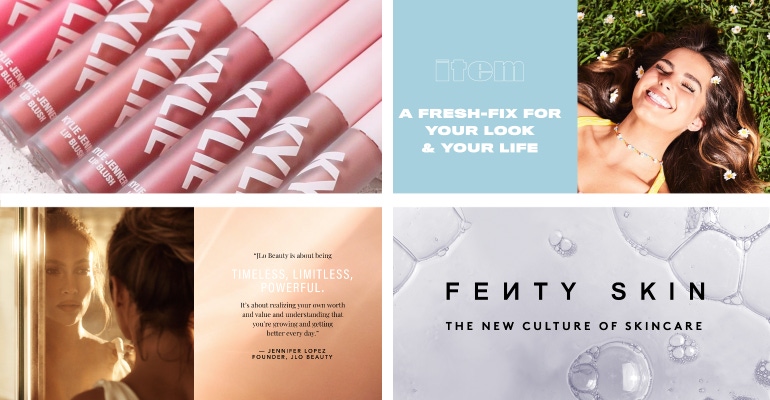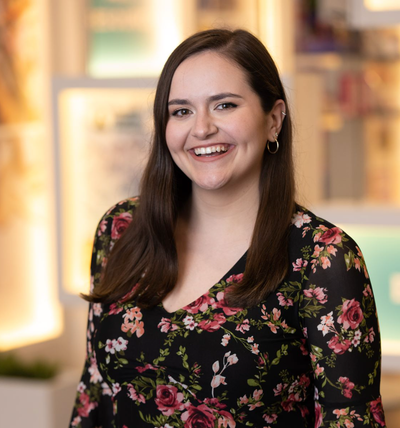I Feel Pretty: The Evolution of Celeb Beauty Licensing
Celebrities are jumping into the beauty business more than ever.

Makeup collaborations have been a licensing category for brands for decades, from celebrity makeup artist Kevyn Aucoin teaming with Ultima 2 for cosmetics to MAC x Barbie in 2007 to even Chipotle and E.L.F. Cosmetics this year.
In addition to celebrity beauty brand is the celebrity fragrance category, which includes celebrities like Britney Spears, Katy Perry and Jessica Simpson. Some branded fragrances from the� likes of Lady Gaga, Kim Kardashian and Jennifer Lopez have branched out into beauty brands with Haus Laboratories, KKW Beauty/Fragrance and JLo Beauty, respectively. The celebrity perfume line is strong, with Dolly Parton recently introducing a branded fragrance.
The glamour of celebrity and the beauty needs of the consumer go together, resulting in a powerful marketing tool. In 2019, YPulse found that 51% of GenZ would be more likely to buy a product if their favorite online celebrity recommended it. Knowing the power of celebrity, makeup brands chose them to be the face of a product launch. Not only do celebrities wield influence over their audience, but potential influence over the beauty market.
With this buying power in their hands, celebrities have jumped on the opportunity to try their luck in the beauty space. Recently, singer and actress Ariana Grande debuted her makeup line with the upcoming launch of her brand, R.E.M. Beauty. Actress Jennifer Aniston also recently launched a haircare line called LolaVie.
Grande and Aniston follow in the footsteps of celebrities like actrss and singer Selena Gomez with Rare Beauty, social media influencer and actress Addison Rae with ITEM Beauty, Kylie Jenner with Kylie Cosmetics and Rihanna, who has launched Fenty Beauty and Fenty Skin.
Some celebrities choose to collaborate with established brands to launch licensed collections - think Megan Thee Stallion x Revlon, Zoë Kravitz x YSL.
With loyal fan bases, the capitalization of the celebrity makeup market is a step for entertainment industry who are known for their physical appearance. Both the celebrity and the brand they front benefit from this parasocial relationship. But what will happen if celebrity begins to fade, and what does this mean for the beauty industry?
“As of now, independent and celebrity-backed beauty brands are still in their early growth stages and will continue to give the traditional brands fierce competition over the coming years,” Alanna Dible, senior audit manager, and Mark Grant, audit senior, Mazars USA, told WWD. “However, especially for celebrity brands, it is uncertain whether the sales will wane once the celebrity’s glossy appeal fades. A new generation of celebrities may enter the industry with a beauty offering of their own. We may see each brand have a shelf life, with larger celebrities outlasting the rest.”
For example, celebrities like Marilyn Monroe have become icons in the beauty space which have allowed licensed products with her likeness to be produced for decades. Monroe’s signature look has become a classic beauty staple, allowing her to continue to sell years after her passing.
As beauty trends continue to ebb and flow, licensed cosmetics continue to be produced and purchased. The adoration fans have for the celebrities who represent the makeup company may benefit the visibility of both celebrity and brand.
Long-lasting celebrity beauty brands will be those linked to those who can stay in the spotlight – and those who can continue to inspire the aesthetic of their fans.
About the Author(s)
You May Also Like








